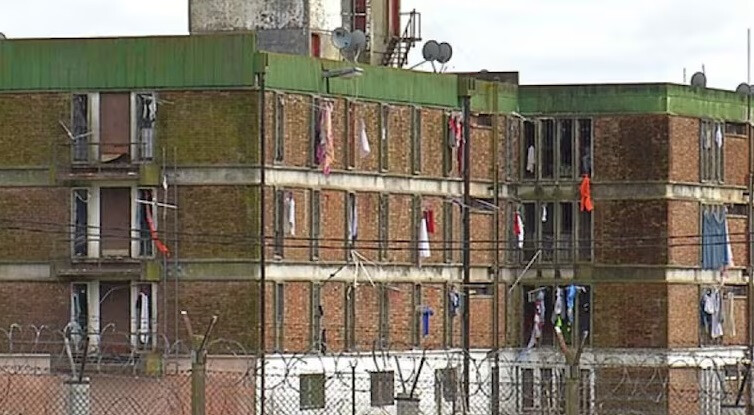
A tragic fire, presumed to have been caused by an altercation among inmates, occurred at a prison in Santiago Vázquez, Uruguay, resulting in four deaths and three prison guards being treated for smoke inhalation. This incident once again underscores the severe overcrowding issue within Uruguay's correctional facilities and the potential for recurrent violence.
The Tragic Scene and Casualties
According to an announcement by the Ministry of Interior, the fire broke out around 1:00 PM local time (4:00 PM GMT) on June 16, in a cellblock at Prison No. 4 in Santiago Vázquez, located 22 km from central Montevideo. Four inmates, aged 23, 27, 34, and 47, died in the blaze. The Ministry stated that the situation arose from a "confrontation between groups of inmates housed in adjacent cells" and added that the situation is now "under control."
Additionally, three prison guards working at the facility received medical attention due to carbon monoxide inhalation. The Santiago Vázquez prison is known to house the largest number of inmates in Uruguay.
Deep-Rooted Overcrowding and Government Response
The fundamental cause of this accident is attributed to the chronic overcrowding issue within Uruguay's correctional facilities. Interior Minister Carlos Negro, in a press conference, blamed the "increasing overcrowding" for the recurring violence in Uruguayan prisons. He emphasized that "structural measures are needed" to resolve these issues, requiring political consensus and financial support from international organizations.
According to data from the Uruguayan Ministry of Interior, as of the end of 2024, there were over 16,000 inmates in Uruguay. This high number places Uruguay, with a population of 3.4 million, among the top 15 countries globally for per capita incarceration rates, according to the World Prison Brief. Overcrowding in correctional facilities deteriorates inmates' basic living conditions, causes hygiene problems, and limits access to medical services. Furthermore, it fosters conflict and violence among inmates and increases the workload for prison guards, leading to various social issues.
Recurring Tragedy: A Similar Fire in 2024
What makes this incident even more distressing is that it is not the first of its kind. In September 2024, a fire of similar characteristics also occurred at the same Santiago Vázquez prison, resulting in the deaths of six inmates. These recurring tragedies suggest that the Uruguayan government is failing to address the fundamental issues within its correctional facilities. At that time, the fire was also presumed to have originated from inmate conflicts, and deficiencies in fire safety equipment and the difficulty of rapid response were identified as problems.
Following the September 2024 fire, human rights organizations strongly criticized the poor conditions and overcrowding in Uruguayan prisons, urging international intervention. The UN Human Rights Committee also expressed concern over the human rights situation in Uruguayan prisons and demanded practical measures to improve the treatment of inmates.
Future Outlook and Challenges
The Uruguayan government is expected to face increased pressure for correctional facility reform in the wake of this incident. As Minister Negro noted, experts commonly agree that without structural improvements, not just emergency measures, similar tragedies could recur at any time.
The challenges to be addressed are complex. In the short term, prison safety facilities must be strengthened, and guards' training improved to enhance their crisis response capabilities. In the long term, judicial reforms to reduce incarceration rates, coupled with the construction of new prisons or the expansion of existing facilities, are necessary to alleviate overcrowding. Additionally, efforts to reduce recidivism through expanded education and vocational training programs for inmates must be pursued concurrently.
International attention and support will also play a crucial role. The Uruguayan government must continue its efforts to improve the correctional system in cooperation with international human rights organizations and international bodies. This fire clearly exposed the vulnerabilities of Uruguay's correctional system, and swift and decisive action is required to prevent further tragedies. All eyes are on the Uruguayan government to see if it will treat this incident not as a mere accident, but as a turning point for fundamental reform.
[Copyright (c) Global Economic Times. All Rights Reserved.]






























